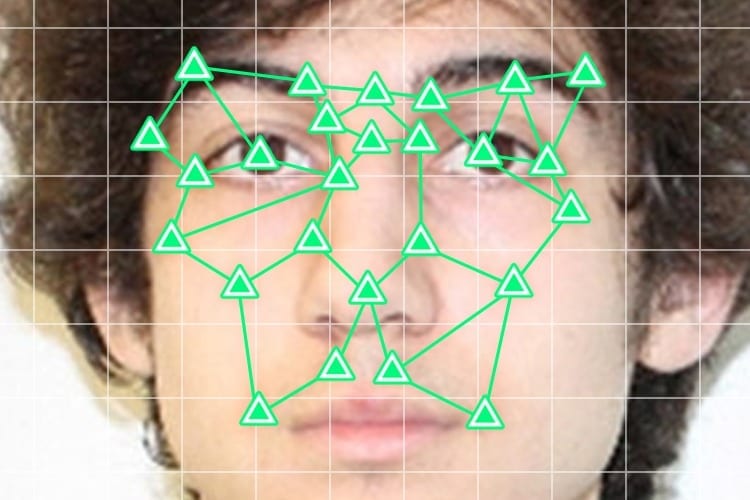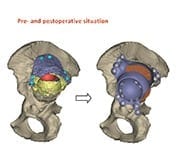
Joseph J. Atick frets that he may have abetted a technology that could upend the social order.
Joseph J. Atick cased the floor of the Ronald Reagan Building and International Trade Center in Washington as if he owned the place. In a way, he did. He was one of the organizers of the event, a conference and trade show for the biometrics security industry. Perhaps more to the point, a number of the wares on display, like an airport face-scanning checkpoint, could trace their lineage to his work.
A physicist, Dr. Atick is one of the pioneer entrepreneurs of modern face recognition. Having helped advance the fundamental face-matching technology in the 1990s, he went into business and promoted the systems to government agencies looking to identify criminals or prevent identity fraud. “We saved lives,” he said during the conference in mid-March. “We have solved crimes.”
Thanks in part to his boosterism, the global business of biometrics — using people’s unique physiological characteristics, like their fingerprint ridges and facial features, to learn or confirm their identity — is booming. It generated an estimated $7.2 billion in 2012, according to reports by Frost & Sullivan.
Making his rounds at the trade show, Dr. Atick, a short, trim man with an indeterminate Mediterranean accent, warmly greeted industry representatives at their exhibition booths. Once he was safely out of earshot, however, he worried aloud about what he was seeing. What were those companies’ policies for retaining and reusing consumers’ facial data? Could they identify individuals without their explicit consent? Were they running face-matching queries for government agencies on the side?
Now an industry consultant, Dr. Atick finds himself in a delicate position. While promoting and profiting from an industry that he helped foster, he also feels compelled to caution against its unfettered proliferation. He isn’t so much concerned about government agencies that use face recognition openly for specific purposes — for example, the many state motor vehicle departments that scan drivers’ faces as a way to prevent license duplications and fraud. Rather, what troubles him is the potential exploitation of face recognition to identify ordinary and unwitting citizens as they go about their lives in public. Online, we are all tracked. But to Dr. Atick, the street remains a haven, and he frets that he may have abetted a technology that could upend the social order.
Face-matching today could enable mass surveillance, “basically robbing everyone of their anonymity,” he says, and inhibit people’s normal behavior outside their homes. Pointing to the intelligence documents made public by Edward J. Snowden, he adds that once companies amass consumers’ facial data, government agencies might obtain access to it, too.
To many in the biometrics industry, Dr. Atick’s warning seems Cassandra-like. Face recognition to them is no different from a car, a neutral technology whose advantages far outweigh the risks. The conveniences of biometrics seem self-evident: Your unique code automatically accompanies you everywhere. They envision a world where, instead of having to rely on losable ID cards or on a jumble of easily forgettable — not to mention hackable — passwords, you could unlock your smartphone or gain entry to banks, apartment complexes, parking garages and health clubs just by showing your face.
Dr. Atick sees convenience in these kinds of uses as well. But he provides a cautionary counterexample to make his case.
The Latest on: Face-matching
[google_news title=”” keyword=”Face-matching” num_posts=”10″ blurb_length=”0″ show_thumb=”left”]
via Google News
The Latest on: Face-matching
- Sultan Azlan Shah Cup 2024: Green Shirts draw nerve-wracking match against Kiwison May 10, 2024 at 6:03 am
Abu Bakar Mahmood has led the Green Shirts to draw a nerve-wracking match against Kiwis being the sole goal-scorer to equalise goals 1-1 on Friday in the ongoing 30th Sultan Azlan Shah Cup 2024 ...
- Yoel Romero faces Owen Livesey in openweight grappling match at Polaris 28on May 10, 2024 at 5:45 am
Yoel Romero will stay active by competing in a grappling match. Olympic silver medalist wrestler Romero faces Commonwealth Judo champion Owen Livesey in an openweight submission grappling ...
- IPL 2024, GT vs CSK Today IPL Match Live Score: Chennai Super Kings look to strengthen playoffs chances, face wooden spooners Gujarat Titanson May 10, 2024 at 5:27 am
GT vs CSK IPL 2024 Live Score - The last time Gujarat Titans (GT) and Chennai Super Kings (CSK) clashed in an Indian Premier League (IPL) match in Ah ...
- Azlan Shah Hockey Cup: Pakistan to face Japan tomorrowon May 10, 2024 at 5:18 am
In the 30th Sultan Azlan Shah Cup 2024 hockey tournament, Pakistan will play their third match against Japan in Ipoh, Malaysia tomorrow. The match will start at 3:15 pm. Earlier, Pakistan in their ...
- College women’s water polo: Wagner wins play-in match in NCAA Championships, faces No. 1 UCLA nexton May 9, 2024 at 4:01 pm
BERKELEY, Calif. -- The Wagner College women’s water polo team took down the Biola Eagles in the play-in round of the NCAA Water Polo Championships on Wednesday at the Spieker Aquatics Center. The ...
- Bayer Leverkusen set European record with 49th straight match without defeat, advance to Europa League finalon May 9, 2024 at 2:09 pm
A defeat looked likely, but they came back from 2-0 down to AS Roma to draw 2-2 and cruise into the Europa League final ...
- Former WWE champion must face Bayley in a singles match for the first time in 5 yearson May 9, 2024 at 9:26 am
As the WWE universe gears up for the highly anticipated premium live event, King and Queen of the Ring, in Saudi Arabia, the road to the spectacle has taken an intriguing turn. Bayley, the current WWE ...
- The Elite To Face Team AEW In Anarchy In The Arena Match At AEW Double Or Nothingon May 8, 2024 at 5:59 pm
The Elite will wage war with Team AEW at AEW Double or Nothing. Led by EVPs The Young Bucks, The Elite have taken control of AEW ever since they viciously attacked Tony Khan. EVP and former world ...
- Match looks to Hinge as Tinder failson May 8, 2024 at 2:55 pm
Match Group, the company that owns several dating apps, including Tinder and Hinge, released its first-quarter earnings report on Tuesday, which shows While Tinder struggles to retain paying users, ...
- PSG faces a difficult rebuilding task without Mbappé as the curtain falls on superstar eraon May 8, 2024 at 9:08 am
Kylian Mbappé will become the latest expensive superstar to leave Paris Saint-Germain without a Champions League title.
via Bing News










